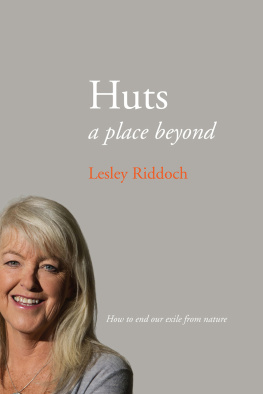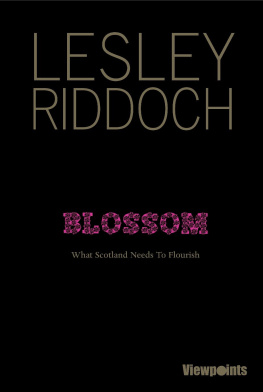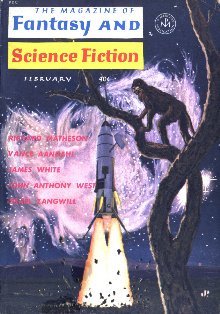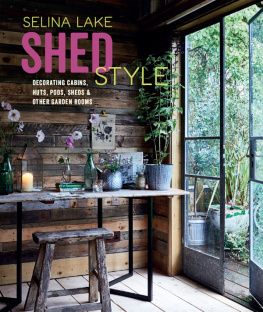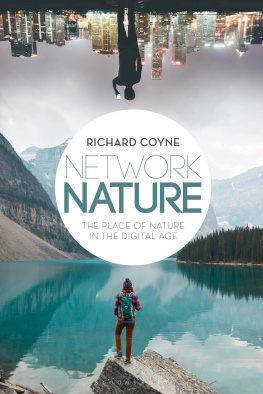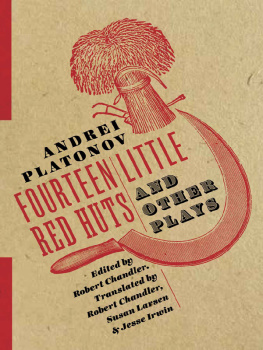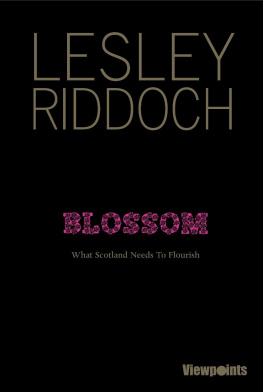Riddoch - Huts : A Place Beyond - How to End Our Exile from Nature
Here you can read online Riddoch - Huts : A Place Beyond - How to End Our Exile from Nature full text of the book (entire story) in english for free. Download pdf and epub, get meaning, cover and reviews about this ebook. year: 2020, publisher: Lightning Source Inc, genre: Home and family. Description of the work, (preface) as well as reviews are available. Best literature library LitArk.com created for fans of good reading and offers a wide selection of genres:
Romance novel
Science fiction
Adventure
Detective
Science
History
Home and family
Prose
Art
Politics
Computer
Non-fiction
Religion
Business
Children
Humor
Choose a favorite category and find really read worthwhile books. Enjoy immersion in the world of imagination, feel the emotions of the characters or learn something new for yourself, make an fascinating discovery.
- Book:Huts : A Place Beyond - How to End Our Exile from Nature
- Author:
- Publisher:Lightning Source Inc
- Genre:
- Year:2020
- Rating:3 / 5
- Favourites:Add to favourites
- Your mark:
- 60
- 1
- 2
- 3
- 4
- 5
Huts : A Place Beyond - How to End Our Exile from Nature: summary, description and annotation
We offer to read an annotation, description, summary or preface (depends on what the author of the book "Huts : A Place Beyond - How to End Our Exile from Nature" wrote himself). If you haven't found the necessary information about the book — write in the comments, we will try to find it.
Huts : A Place Beyond - How to End Our Exile from Nature — read online for free the complete book (whole text) full work
Below is the text of the book, divided by pages. System saving the place of the last page read, allows you to conveniently read the book "Huts : A Place Beyond - How to End Our Exile from Nature" online for free, without having to search again every time where you left off. Put a bookmark, and you can go to the page where you finished reading at any time.
Font size:
Interval:
Bookmark:


First published 2020
Reprinted with minor revisions 2020
ISBN: 978-1-910022-13-9
Typeset in 10.5 point Sabon
The authors right to be identified as author of this work under the Copyright, Designs and Patents Act 1988 has been asserted.
Lesley Riddoch, 2020
To Manhal Nassif, Morwenna Wood and Jacqui Calder whose surgical, medical, herbal and caring skills mean Im happily trotting about today.
LESLEY RIDDOCH is an award-winning broadcaster, writer, journalist, independence campaigner and land reform activist. She writes weekly columns for The Scotsman and The National and is a contributor to The Guardian, BBC Question Time, Scotland Tonight and Any Questions. She is founder and Director of Nordic Horizons, a policy group that brings Nordic experts to the Scottish Parliament and produces a popular weekly podcast. Lesley has presented You and Yours on BBC Radio 4, The Midnight Hour on BBC2 and The Peoples Parliament and Powerhouse on Channel 4. She founded the Scottish feminist magazine Harpies and Quines, won two Sony awards for her daily Radio Scotland show and edited The Scotswoman a 1995 edition of The Scotsman written by its female staff. She was a trustee of the Isle of Eigg Trust that pioneered the successful community buyout in 1997. She has presented and co-produced films about the Faroes, Iceland and Norway and during lockdown, presented Declaration, a film celebrating the 700th anniversary of the Declaration of Arbroath. Lesley was awarded a PhD and the Fletcher of Saltoun Award for her contribution to Scotlands civic life in 2020. She lives near the sea in north Fife.
To Riddoch, the humble hut is a birthright to which Scots have long since been denied. On the page and in person, Riddoch is persuasive.
SUNDAY TIMES
A fascinating tale of why Scotlands history of recreational hut culture is so far from the European norm. Lesley brings a blend of academic rigour, journalistic flair and entertaining story-telling to this neglected topic and makes a compelling case for a renaissance of the Scottish hut.
ANDY WIGHTMAN
Contents
List of Figures and Tables
Figure 1.1 Flying to Hammerfest.

Scotland, Norway and our North Sea, Arctic and Baltic neighbours.
In this book the Norwegian word hytte, is used to mean hut, cabin or cottage. Observing Norwegian grammatical rules would lead to many variations. So, the singular form will be used throughout (ie hytte as opposed to hytter, en hytte, hyttene). Norwegian words (except proper names) will be shown in italics with their English meaning afterwards in brackets.
Preface
THIS STORY STARTS in the 1960s, with annual pilgrimages to my parents family homes in Wick and Banffshire each summer holiday. Other folk round us in Belfast headed for the coast or destinations in the sun. But my dad drove our family (Mum, wee brother and myself) first to the LarneStranraer ferry and then overland on an epic annual car journey to some of the remotest parts of Scotland. Thus began my fascination with The North. That physical connection ended when my grandparents died and their council-owned homes passed on to new tenants. But the emotional link and the echo of their northern lives travelled with us. Everywhere. My dad recited the Doric poems of the North East every night into a reel-to-reel Grundig tape recorder much to the mock annoyance of his truly fascinated offspring. Decades later, his regular use of the Doric quine made Harpies and Quines an obvious title for a scurrilous feminist magazine I co-founded in the early 90s. My Caithness mothers quiet sense of outrage about land clearances and her fascination for almost all things Norwegian was infectious even though she was never that keen on the Great Outdoors. I only ever coaxed her uphill to the bothy I rented for seven eventful and eccentric years on one solitary but memorable occasion.
So finally, in 2010, I put all these parts of my life together and embarked on a PhD comparing the hut and cabin traditions of Scotland and Norway. Ten long years, some great friends in Hammerfest and Lindya and a basic proficiency in Norwegian later, this book is the result.
Id like to thank Professor Donna Heddle, whose UHI Northern Studies course first prompted me to consider academic research and whose comments as an external examiner helped fine tune the PhD. Thanks also for the inspiration provided by Professor John Bryden, whose determination to connect Scotland to the wider Nordic region is nothing short of heroic. Im grateful to my supervisors Profs Allan McInnes and Richard Finlay from Strathclyde University and Jon Vidar Sigurdsson from Oslo University for their belief and encouragement and to Dr Fiona Watson who spent her own valuable time helping me restructure the PhD when I was on the verge of quitting. Dr Ali Cathcart helped me shape mountains of material into coherent form with humour, genuine interest and gently applied academic rigour and Strathclyde University granted several extensions to the PhD submission because of my involvement in two referendums, four elections, three books and some serious health issues. Thanks to Caitlin DeSilvey and Janice Marshall for letting me read and quote from their own research When Plotters Meet: Edinburghs Allotment Movement 19212001 and Holidays in East Lothian with focus on Seton Sands, respectively. Scott McGregor let me use Dundee University library to write up my PhD and Murray Ferris, the son of Carbeth pioneer William Ferris shared his personal archive of letters, newspaper cuttings and photographs. Chris Ballance, Gerry Loose and other Carbeth hutters gave access to their historical material and members of the Thousand Huts campaign including Karen Grant, Ninian Stuart and Donald McPhillimy diligently reminded me that the story of hutting and the determination of our thrawn forebears really does matter.
The generosity of Norwegians has also been amazing. Id like to thank the Norwegian Consul in Scotland Mona Rhne and Honorary Consul David Windmill for arranging the study visit that brought me to Hammerfest. Thanks also to the Yggdrasil Mobility Programme funded by the Research Council of Norway for financing a three month stay at Oslo University in 2011. Dr Ellen Rees, Knut Kjeldstadli and Oivind Bratberg offered reassuring encouragement as I embarked on research in a new country and a faltering new language. Ingun Grimstad Klepp and Inger Johanne Lyng gave access to their fascinating anthropological paper on the hytte islands (which then became case studies for my PhD) and answered innumerable questions ten long years after publication. Thanks also to Finn Arne Jrgensen and Dieter Mller from Ume University who directed me towards relevant Nordic literature at the outset; Knut Are Tvedt, author of the comprehensive Oslo Byleksikon who helped me understand the wider context of Oslo life in the 1920s and my stalwart Scottish, Oslo-based friend Sarah Prosser and fellow Norwegian language learner, Professor of Outdoor Education and patriotic Kiwi, Pip Lynch for their constant humour and optimism. Tutta and Ola Normann and their friends on Lindya managed endless queries and regular visits with ready smiles and strong coffee. Oddmund steb took time off work to explain the expansion of huts on neighbouring Nakholmen. My friend Inger Lise Svendsen took me round her extended family and the Arctic hutting community of Skaidi on her snowmobile, helping me piece together the story of its origins in glamorous style. Im also hugely grateful to Creative Scotland for a small grant which let me take two months away from weekly newspaper column-writing to turn the completed PhD into this rather different fusion of story-telling and research.
Next pageFont size:
Interval:
Bookmark:
Similar books «Huts : A Place Beyond - How to End Our Exile from Nature»
Look at similar books to Huts : A Place Beyond - How to End Our Exile from Nature. We have selected literature similar in name and meaning in the hope of providing readers with more options to find new, interesting, not yet read works.
Discussion, reviews of the book Huts : A Place Beyond - How to End Our Exile from Nature and just readers' own opinions. Leave your comments, write what you think about the work, its meaning or the main characters. Specify what exactly you liked and what you didn't like, and why you think so.

